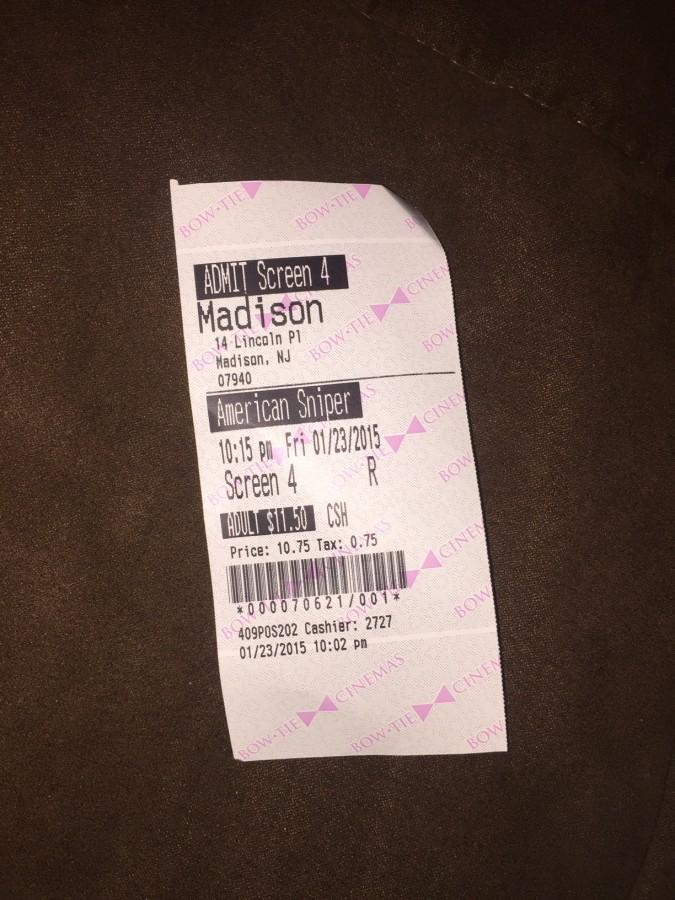American Sniper Review
“American Sniper” didn’t live up to the hype.
(Spoiler Alert: Not much is given away, but the ending is discussed)
I went into American Sniper wanting to hate it. But I’ll admit that, though I didn’t hate it, I was intensely ambivalent about it. I went to see the movie with friends kind of ironically, just for the sake of seeing a movie that I thought would upset me, but in leaving it, I found myself mostly disappointed.
The film American Sniper, Clint Eastwood’s Chris Kyle biopic and Iraq War action flick, is the story of the most decorated sniper in American history, Chris Kyle, who accumulated 160 confirmed kills in his three tours abroad. The film focuses on his war story and his struggle to assimilate into civilian life.
Though lauded by the Academy and celebrated by several celebrities, including Forrest Gump’s Gary Sinise, American Sniper is dull as an action film and irresponsible as a historical first-hand account of war.
The film is profoundly apolitical, a bitter accomplishment for a movie about a recent international conflict. It makes no attempt at explaining Washington’s justification for war, excluding the hunt for weapons of mass destruction and the horrors of Saddam Hussein’s chemical war in the Gulf. Instead, the film cuts from shots of Kyle (Bradley Cooper) watching clips of 9/11 to shots of him in Iraq, with no cogent justification for the American invasion of the country.
Kyle’s language and attitude toward the native Iraqi people is problematic. He frequently describes them as “savages”, a term that is racist and unacceptable. The only truly barbaric character in the film is a man called The Butcher, a man who savagely murders children but who did not actually exist. The true Chris Kyle was a raging Islamophobe, writing in his memoir that he “only [wished] that [he] had killed more.” He justifies his use of the word “savages” with the fact that the Iraqis killed Americans, neglecting the fact that he was an interloper in their country killing their neighbors.
For instance, when confronted by a fellow soldier, Kyle justifies his fighting by asserting that there is “evil” in Iraq, to which his friend responds, “There’s evil everywhere.” Kyle dismisses this rhetoric, pandering only to fears that terrorists would make it stateside.
In this way, Sniper operates in a moral binary, ignoring the gray space that exists in all conflicts. The American soldiers are portrayed as and referred to as “the good guys”; the Iraqis, the bad. The primary antagonist, an Iraqi sniper named Mustafa, is dressed in black and red and spins bullets on the table in the fashion of a murderous sociopath, not a soldier like Kyle himself. Following the theme of “good versus bad,” Sniper celebrates the actions of the invader while demonizing the defender, hypocritically implying that to do the reverse would be immoral and anti-American. By focusing on the trials of the American soldier and ignoring the much greater cost of Iraqi civilian life, Sniper does not responsibly depict the tragedy of the war in Iraq.
Regardless of politics, Sniper is simply a boring war movie. Though I admit I saw it late at night, I found myself nodding off. The action scenes are gruesome but lack purpose and most of the scenes without action are just sort of dull. There’s only so much interest a person can take in the chronology of a military engagement that has no meaningful background.
The film, however, is not without praise. Both Cooper and his on-screen wife Sienna Miller performed wonderfully, especially given Cooper’s contrasting former roles. The topics of PTSD and assimilation into civilian life were well written; Cooper’s post-war agony and the rift formed between him and his wife well portray the struggle of American veterans to return to their pre-war lives.
Sniper closes with Kyle’s murder by another veteran at a shooting range, though it neglects the detail that the vet also had PTSD, or at least claimed to. Here, Sniper drops the ball, missing out on a chance to show audiences the way in which the war quite ironically killed Kyle, avoiding the anti-war message in favor of a genuine tear-jerker. The final minutes of the film play clips from Kyle’s funeral accompanied by an emotional performance of “Taps”. The credits roll in silence, allowing the audience to soak in the very real grief with which the film ends.
In all, Sniper was not worth the near universal praise. Though accurately portraying the issue of post-war veteran life, the film irresponsibly depicts the horrors of war under a veil of American supremacy. Cooper’s performance was fantastic, but the film itself was solidly mediocre. For better Iraq War actions flicks, check out The Hurt Locker.
